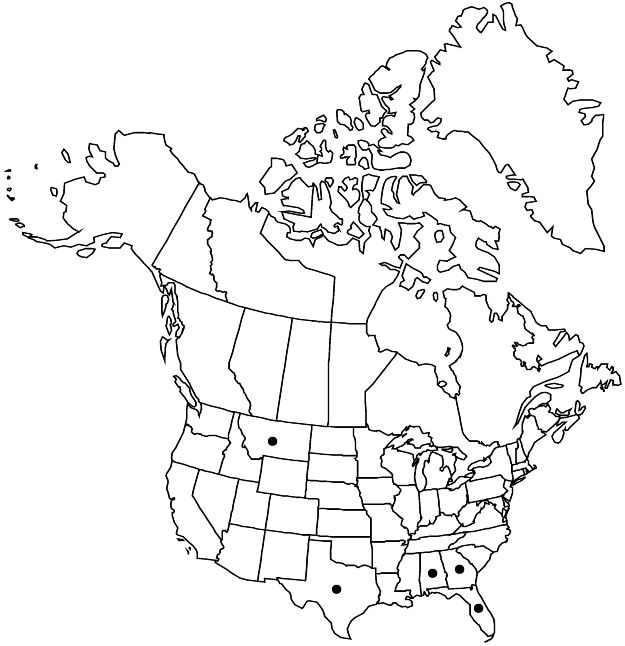Difference between revisions of "Cucumis anguria var. longaculeatus"
Biosyst. Monogr. Cucumis, 39. 1991.
Introduced
Treatment appears in FNA Volume 6. Treatment on page 37.
FNA>Volume Importer |
FNA>Volume Importer |
||
| Line 52: | Line 52: | ||
|publication year=1991 | |publication year=1991 | ||
|special status=Introduced | |special status=Introduced | ||
| − | |source xml=https://jpend@bitbucket.org/aafc-mbb/fna-data-curation.git/src/ | + | |source xml=https://jpend@bitbucket.org/aafc-mbb/fna-data-curation.git/src/f6b125a955440c0872999024f038d74684f65921/coarse_grained_fna_xml/V6/V6_58.xml |
|genus=Cucumis | |genus=Cucumis | ||
|species=Cucumis anguria | |species=Cucumis anguria | ||
Revision as of 20:16, 24 September 2019
Leaf blades deeply palmately 3–5-lobed to weakly 3-lobed or nearly unlobed. Pistillate flowers: hyaline bristle at apex of hypanthial aculei 0.5–1 times as long as opaque base. Pepos prominently aculeate, aculei 4–10(–15) mm.
Phenology: Flowering Jul–Oct.
Habitat: Disturbed areas
Elevation: 0–100(–500) m
Distribution

Ala., Fla., Ga., Mont., Tex., Africa, introduced also in West Indies.
Discussion
The gherkins are escaped in a few, scattered localities in the United States, mostly in Florida, and it is not even clear that they are naturalized as reproductive populations.
Selected References
None.
Lower Taxa
None.